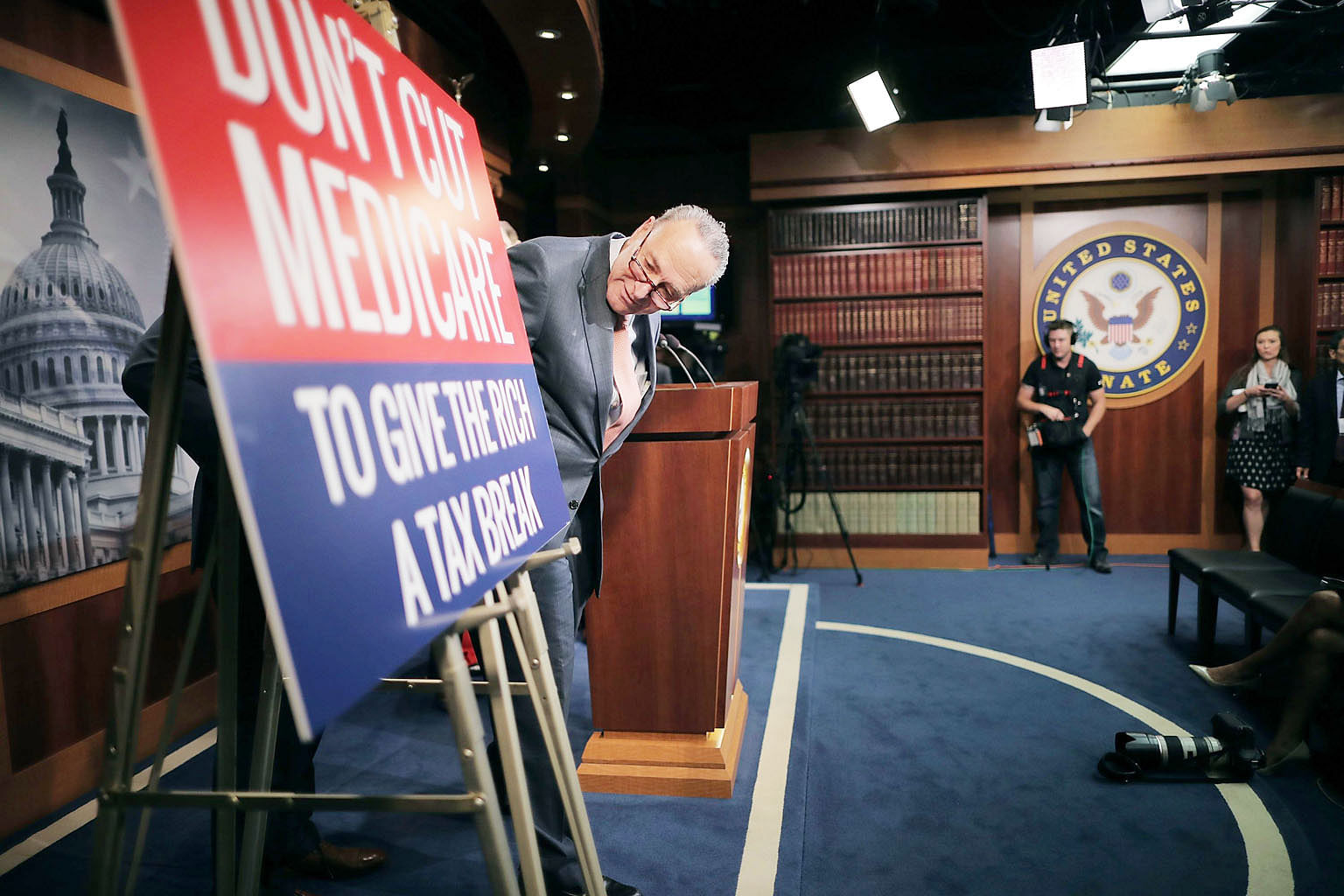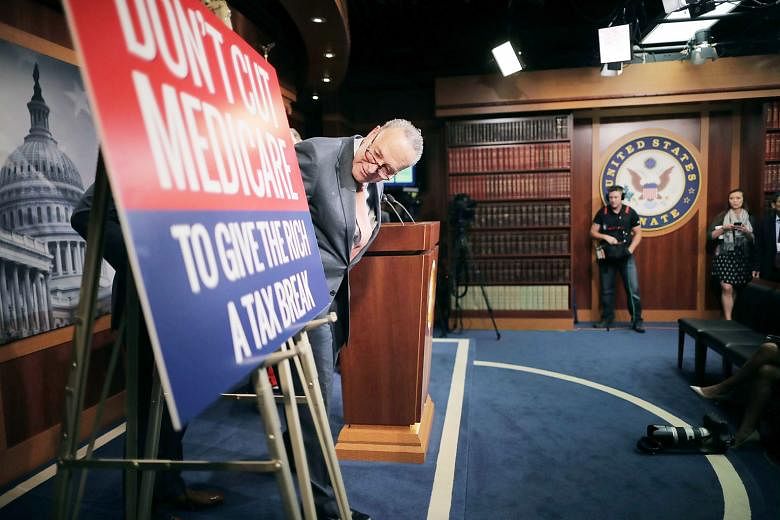NEW YORK • Having failed to "repeal and replace" the 2010 Affordable Care Act ("Obamacare"), United States President Donald Trump's administration and the Republican congressional majority have now moved on to tax reform. Eight months after assuming office, the administration has been able to offer only an outline of what it has in mind. But what we know is enough to feel a deep sense of alarm.
Tax policy should reflect a country's values and address its problems. And today, the US - and much of the world - confronts four central problems: widening income inequality, growing job insecurity, climate change and anaemic productivity growth. The US also faces the need to rebuild its decaying infrastructure and strengthen its underperforming primary and secondary education system.
But what Mr Trump and the Republicans are offering in response to these challenges is a tax plan that provides the overwhelming share of benefits not to the middle class - a large proportion of which may actually pay more taxes - but to America's millionaires and billionaires. If inequality was a problem before, enacting the Republicans' proposed tax reform will make it much worse.
Corporations and businesses will be among the big beneficiaries, a bias justified on the grounds that this will stimulate the economy. But Republicans, of all people, should understand that incentives matter: It would be far better to reduce taxes for those companies that invest in the US and create jobs, and increase taxes for those that don't.
After all, it is not as if America's large corporations were starved for cash - they are sitting on a couple of trillion dollars. And the lack of investment is not because profits, either before or after tax, are too low; after-tax corporate profits as a share of gross domestic product (GDP) have almost tripled in the last 30 years.
Indeed, with incremental investment largely financed by debt and interest payments being tax-deductible, the corporate tax lowers the cost of capital and the returns to investment commensurately. Thus, neither theory nor evidence suggests that the Republicans' proposed corporate tax giveaway will increase investment or employment.
The Republicans also dream of a territorial tax system, whereby American corporations are taxed only on the income they generate in the US. But this would only reduce revenue and further encourage American companies to shift production to low-tax jurisdictions. A race to the bottom on corporate taxation can be prevented only by imposing a minimum rate on any corporation that engages in business in the US.

America's states and municipalities are responsible for education and large parts of the country's health and welfare system. And state income taxes are the best way to introduce a modicum of progressivity at the sub-national level: States without an income tax typically rely on regressive sales taxes, which impose a heavy burden on the poor and working people. It is thus perhaps no surprise that the Trump administration, staffed by plutocrats who are indifferent to inequality, should want to eliminate the deductibility of state income taxes from federal taxation, encouraging states to shift towards sales taxes.
Addressing the panoply of other problems confronting the US will require more federal revenues, not less. Increases in standards of living, for example, are the result of technological innovation, which in turn depends on basic research. But federal government support of research as a percentage of GDP is now at a level comparable to what it was 60 years ago.
While Mr Trump the candidate criticised the growth of US national debt, he now proposes tax cuts that would add trillions to the debt in just the next 10 years - not the "only" US$1.5 trillion (S$2 trillion) that Republicans claim would be added, thanks to some growth miracle that leads to more tax revenues. Yet the key lesson of former US President Ronald Reagan's "voodoo" supply-side economics has not changed: Tax cuts like these do not lead to faster growth, but only to lower revenues.
This is especially so now, when the unemployment rate is just over 4 per cent. Any significant increase to aggregate demand would be met by a corresponding increase in interest rates. The "economic mix" of the economy would thus shift away from investment; and growth, already anaemic, would slow.
An alternative framework would increase revenues and boost growth. It would include real corporate-tax reform, eliminating the tricks that allow some of the world's largest companies to pay minuscule taxes, in some cases far less than 5 per cent of their profits, giving them an unfair advantage over small local businesses. It would establish a minimum tax and eliminate the special treatment of capital gains and dividends, compelling the very rich to pay at least the same percentage of their income in taxes as other citizens. And it would introduce a carbon tax, to help accelerate the transition to a green economy.
Tax policy can also be used to shape the economy. In addition to offering benefits to those who invest, carry out research and create jobs, higher taxes on land and real-estate speculation would redirect capital towards productivity-enhancing spending - the key to long-term improvement in living standards.
An administration of plutocrats - most of whom gained their wealth from rent-seeking activities, rather than from productive entrepreneurship - could be expected to reward themselves. But the Republicans' proposed tax reform is a bigger gift to corporations and the ultra-rich than most had anticipated. It avoids necessary reforms and would leave the country with a mountain of debt; the consequences - low investment, stalled productivity growth and yawning inequality - would take decades to undo.
Mr Trump assumed office promising to "drain the swamp" in Washington. Instead, the swamp has grown wider and deeper. With the Republicans' proposed tax reform, it threatens to engulf the US economy.
PROJECT SYNDICATE
- The writer, a Nobel laureate in economics, is university professor at Columbia University and chief economist at the Roosevelt Institute. His most recent book is The Euro: How A Common Currency Threatens The Future Of Europe.

